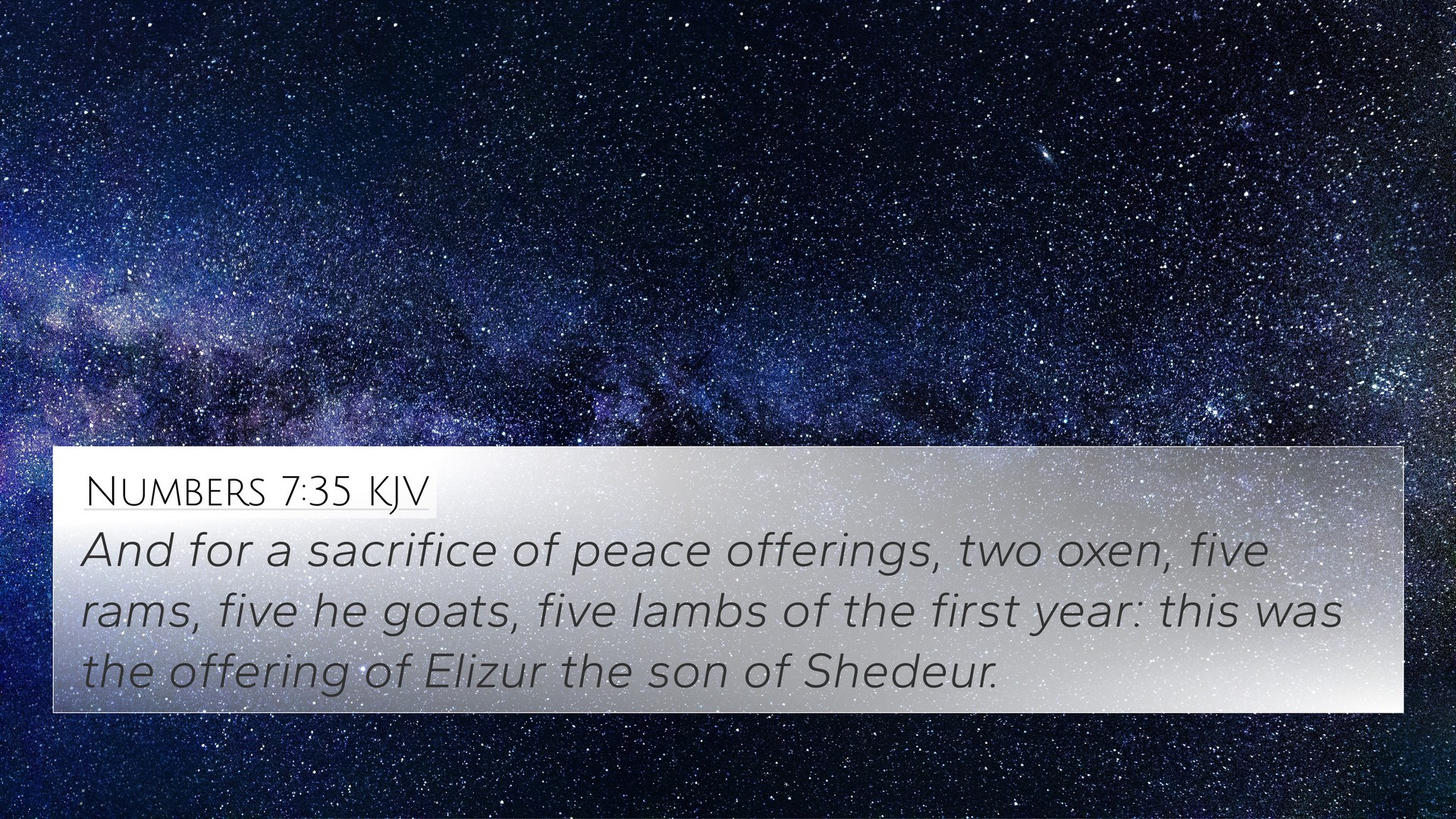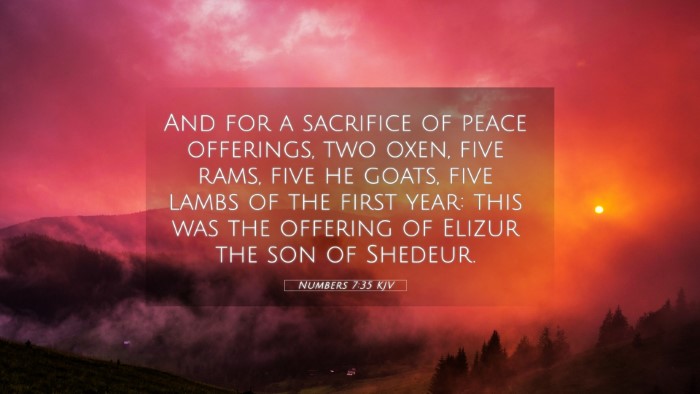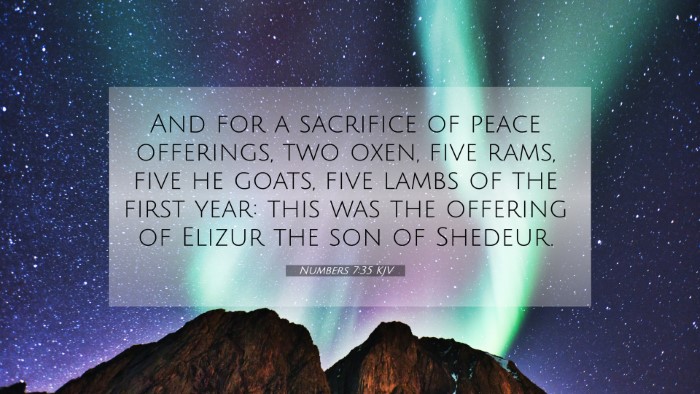Understanding Numbers 7:35
Verse: "One gold dish of ten shekels, full of incense." (Numbers 7:35)
This verse belongs to a section where the leaders of Israel bring offerings for the dedication of the altar. Each leader offered gifts that included various items symbolic of their commitment to God and His service. In examining this verse, we can draw significant insights from public domain commentaries, as detailed below.
Commentary Insights
-
Matthew Henry: Henry interprets this specific offering as a display of Israel's collective devotion to God. The gold dish filled with incense signifies the prayers of the saints ascending before God, symbolizing purity and preciousness in worship. The act of presenting such offerings reflects a heart of gratitude and adoration, highlighting the importance of using valuable resources for divine service.
-
Albert Barnes: Barnes points out that the incense in the context of the tabernacle worship indicated the acceptability of the offerings before God. The weight of the dish and the quality of the incense represent the costly nature of true devotion, reminding believers that their offerings should stem from a sincere heart rather than mere obligation.
-
Adam Clarke: Clarke emphasizes that the presentation of offerings was not just a ritual but a crucial acknowledgment of God's provision and mercy. The gold dish symbolizes the wealth that God has bestowed upon His people, and the act of giving is a means of recognizing and returning God's blessings. Clarke often notes the importance of internal attitudes that should accompany external acts of worship.
Bible Cross-References
Numbers 7:35 can be connected with several other scriptures that deepen its meaning:
- Exodus 30:34-38: Details the preparation of holy incense, setting a precedent for how offerings should be perceived.
- Psalm 141:2: "May my prayer be set before you like incense." This verse exemplifies the symbolic relationship between incense and prayer.
- Hebrews 13:15: Encourages believers to offer spiritual sacrifices, echoing the significance of physical offerings in worship.
- 1 Peter 2:5: Describes Christians as living stones offering up spiritual sacrifices, indicating a continuation of the theme of sacrificial offerings.
- Revelation 5:8: States that the prayers of the saints are presented with incense before God, linking worship from the Old Testament to the New.
- Leviticus 2:1: Discusses grain offerings, providing a broader context on the act of offering and its spiritual significance.
- Malachi 1:11: Points to the importance of worship and the correct offerings being essential to acknowledge God’s greatness.
Connections and Themes
Through examining Numbers 7:35 and its associated commentaries, various themes emerge:
- Thematic Bible verse connections: The act of offering is consistently linked with the idea of dedication to God throughout scripture.
- Scriptural cross-referencing: Practices from the Old Testament remain relevant in New Testament theology regarding sacrifice and worship.
- Inter-Biblical dialogue: The offerings in the tabernacle anticipate the ultimate sacrifice of Christ, establishing a narrative thread that runs through the Bible.
Practical Application
As modern believers, we can glean valuable lessons from this verse in terms of:
- How to use Bible cross-references: Understanding context through cross-referencing can deepen our faith and understanding of worship.
- Bible cross-reference guide: Using commentaries and concordances will enhance your study process.
- Bible study methods: Consider engaging in comparative Bible verse analysis to recognize the interconnectedness of scripture.
Conclusion
Numbers 7:35 serves as a compelling reminder of the significance of our offerings, both physical and spiritual. The insights from the various public domain commentaries illuminate the deep, symbolic meaning behind the act of giving, urging believers to approach worship with hearts aligned with God's desires. By employing tools for cross-referencing and understanding thematic connections within scripture, we can enhance our biblical comprehension and strengthen our faith journey.


